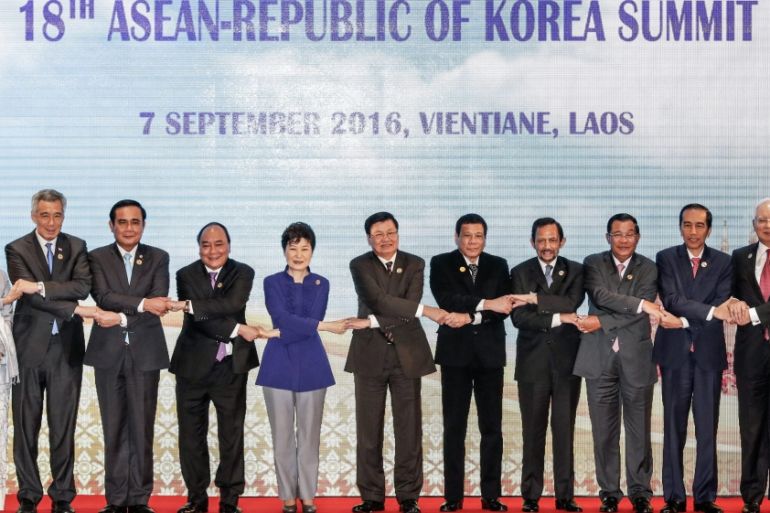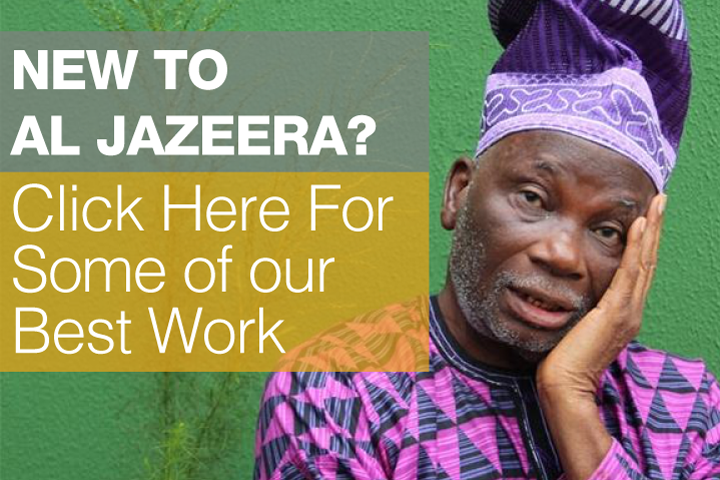Rodrigo Duterte’s game amid the spat with Obama
An old friend like the Philippines no longer holds the US in the same regard as before.

“We’ve got a lot of planes, a lot of helicopters, a lot of cars and a lot of guys. If you are a host country, sometimes it may feel a bit much,” quipped the United States President Barack Obama, trying to downplay an embarrassing commotion shortly after he landed in China for the G20 Summit.
The Chinese hosts controversially denied the American leader red-carpeted stairways upon his arrival, while his staff got into a shouting match with Chinese security officers, who blocked off the White House press corps on the tarmac.
Keep reading
list of 4 itemsUS House approves aid package worth billions for Ukraine, Israel
Will India’s election be free and fair?
Togo approves constitutional reform changing how president is elected
In unprecedented show of defiance, one Chinese official went so far as shouting, “This is our country. This is our airport.”
Yet, the American leader sought to suavely stay above the fray and not make much out of the strange incident.
Instead, he focused on the positive side of his visit to China, where Beijing and Washington made huge headway in fighting climate change, particularly with the host ratifying the Paris climate change agreement.
Nothing, however, prepared him for what came next. Just as the Obama administration tried to recover from the diplomatic tussle in China, the global media headlines reported that the Philippines’ new President, Rodrigo Duterte, uttered expletives against the American leader, provoking uproar in Washington and around the world.
Under political pressure to draw the line, a besieged Obama decided to cancel his much-anticipated first bilateral meeting with the Philippines’ controversial leader.
Far from consolidating his legacy as the US’ first “Asia-Pacific president”, Obama’s final visit to Asia was marred by controversies and a rude awakening to the region’s shifting geopolitical sands.
Diplomatic meltdown
It didn’t take long before the Obama administration had to grapple with the domestic reverberations of its partially unpleasant Asian trip.
Amid heated presidential elections in the US, opponents were quick to cash in on Obama’s controversial visit to Asia, portraying the American president as weak and indecisive.
Eager to push back against criticisms of her party mate and former boss, Democratic presidential nominee Hillary Clinton, who has been portrayed by her Republican opponents as a candidate of continuity, stood firmly with Obama.
By standing up to the US on the human rights issue, Duterte signalled his country's independence and willingness to chart a new direction, for better or worse.
“When the president of the Philippines insulted our president, it was appropriate and a very low-key way to say: sorry, no meeting”, declared Clinton during a campaign speech.
She didn’t hesitate to bring up an emerging point of contention between Washington and Manila, specifically concerns over human rights under the new Filipino government, which has been waging a “shock and awe campaign” against proliferation of drugs and criminality.
“And clearly the [US] president was going to raise concerns that are global about what is going on in the Philippines with extrajudicial killings of alleged drug dealers, that is now somewhere up near 2,000 killings,” argued Clinton, drawing a relatively hard line on an issue that has divided Washington and Manila.
Post-colonial leader
The tough-talking and single-minded Duterte, who has promised to rid his country of crime and drugs within three to six months in office, has shown little patience for Western criticism.
He has also repeatedly expressed his desire for a more independent Philippine foreign policy, which is less reliant on the West.
While Duterte is no stranger to controversy, and is widely known as a foul-mouthed and plain-speaking politician, he couldn’t help himself from uttering expletives after the media grilled him about his scheduled meeting with Obama, who explicitly promised to bring up the human rights issue with his Filipino counterpart.
OPINION: Barack Obama’s Asia legacy in peril
Resorting to a highly nationalist rhetoric, tinged with anti-colonial exhortations, Duterte, shortly before his scheduled meeting with the American leader, dared the US to first get its own house in order before lecturing other countries about human rights.
Duterte cited gross inequalities in American societies, marginalisation of the African-American population, and historical injustices against Native Americans.
“The Philippines is not a vassal state. We have long ceased to be a colony of the United States,” said Duterte before embarking on his diplomatic debut during the latest Association of Southeast Asian Nations summit.
The new normal
For almost a century, the Philippines, a former American colony, has stood shoulder-to-shoulder with the US.
The two countries have a long-standing mutual defence treaty, dating back to the mid-20th century. It is one of the most intimate and enduring bilateral relations anywhere in the world.
And this explains why Duterte subsequently made a rare decision to issue a statement of regret, clarifying that his expletives were not directed at the American president, but instead a random expression of frustration over criticism of his human rights record.
OPINION: When superpowers court Rodrigo Duterte
The Philippine government expressed its interest in “ironing out differences” and scheduling a bilateral meeting with the American president at a more fortuitous juncture.
The new Filipino president, however, seems interested in a new foreign policy direction.

Amid an emerging post-American world, Washington’s closest Southeast Asian ally has sought to mend ties with Beijing and find a mutually satisfactory compromise in the bitterly disputed South China Sea.
By standing up to the US on the human rights issue, Duterte signalled his country’s independence and willingness to chart a new direction, for better or worse.
On its part, the Obama administration excruciatingly downplayed the incident, arguing that bilateral relations with the Philippines are still “rock-solid”.
But few could escape the impression that not only Asia’s rising powers like China, but also an old friend like the Philippines no longer hold the US in the same regard. This may very well be the beginning of a new global order.
Richard Javad Heydarian is a specialist in Asian geopolitical/economic affairs and author of Asia’s New Battlefield: US, China, and the Struggle for Western Pacific.
The views expressed in this article are the author’s own and do not necessarily reflect Al Jazeera’s editorial policy.
